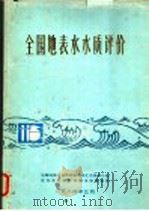《管理学基础英语读本》
| 作者 | 邱学斗,邵冲编译 编者 |
|---|---|
| 出版 | 广州:中山大学出版社 |
| 参考页数 | 317 |
| 出版时间 | 1997(求助前请核对) 目录预览 |
| ISBN号 | 7306011618 — 求助条款 |
| PDF编号 | 87582518(仅供预览,未存储实际文件) |
| 求助格式 | 扫描PDF(若分多册发行,每次仅能受理1册) |

Part One The Basis of Management Theory and Science1
1.Why Management1
The Goal of All Managers3
2.Managing:Science or Art4
3.The Functions of the Manager5
Planning7
Organizing7
Staffing9
Leading9
Controlling10
Coordination,the Essence of Managership10
4.Frederick Taylor and Scientific Management12
Taylor's Principal Concern12
Taylor's Principles13
Followers of Taylor17
5.Fayol:Father of Modern Operational-Management Theory20
6.Patterns of Management Analysis:A Management Theory Jungle22
The Managerial Roles Approach23
McKinsey's 7-S Approach26
The Operational,or Management Process,Approach27
Part Two Planning40
1.The Importance of Planning40
To Offset Uncertainty and Change40
To Focus Attention on Objectives40
To Gain Economical Operation42
To Facilitate Control42
2.Enterprise Purpose and Objectives43
Objectives Form a Hierarchy44
Objectives Form a Network45
Multiplicity of Objectives48
Long-Range and Short-Range Objectives49
3.The TOWS Matrix:A Modern Tool for Analysis of the Situation50
Four Alternative Strategies52
4.Industry Analysis and Generic Competitive Strategies by Porter53
Time Dimension and TOWS Matrix53
Industry Analysis54
Overall Cost Leadership Strategy55
Differentiation Strategy55
Focused Strategies55
5.Decision Making As a Key Step in Planning.56
Rationality and Decision Making57
1.Organization Levels and the Span of Management66
Part Three Organizing66
Choosing the Span68
Problems with Organization Levels69
Operational-Management Position:A Situational Approach70
2.Departmentation by Enterprise Function71
Advantages74
Disadvantages74
3.Departmentation by Product75
Advantages77
Disadvantages78
Some Notes of Caution78
4.Choosing the Pattern of Departmentation79
The aim:Achieving Objectives79
Mixing Types of Departmentation80
5.Authority and Power81
6.Line and Staff Concepts82
The Nature of Line and Staff Relationships83
Line and Staff Relationships or Departmentation84
The Nature of Decentralization87
7.Decentralization of Authority87
Different Kinds of Centralization88
Decentralization as a Philosophy and Policy89
8.Delegation of Authority89
How Authority Is Delegated89
Splintered Authority90
Recovery of Delegated Authority91
Part Four Staffing101
1.Definition of Staffing101
Analytical and Problem-Solving Abilities102
2.Skills and Personal Characteristics Needed by Managers102
Personal Characteristics Needed by Managers103
3.The Purposes and Uses of Appraisal105
The Conference Board Study105
The General Electric Studies106
4.The Problem of Management Appraisal107
5.Choosing the Appraisal Criteria108
Performance in Accomplishing Goals108
6.Traditional Trait Appraisals109
Performance as Managers109
Weaknesses of Trait Appraisal110
Attempts to Strengthen Trait Rating111
7.Appraising Managers against Verifiable Objectives113
The Appraisal Process113
Three Kinds of Reviews115
Strengths of Appraisal against Verifiable Objectives117
Weaknesses of Apraisal against Verifiable Objectives118
8.A Suggested Program:Appraising Managers as Managers119
Sample Questions for Appraising Managers as Managers120
Advantages of the New Program122
Weaknesses of the New Program123
9.A Team Evaluation Approach123
Part Five Leading132
1.Human Factors in Managing132
Multiplicity of Roles132
The Importance of Personal Dignity133
No Average Person133
Consideration of the Whole Person134
2.Motivation and Motivators134
Motivation134
The Need-Want-Satisfaction Chain135
Complexity of Motivation136
3.Motivation:The Carrot and the Stick139
4.Defining Leadership140
5.Ingredients of Leadership141
The Importance of Communication143
6.The Communication Function in Organizations143
The Purpose of Communication144
7.Communication in the Organization146
The Manager's Need to Know146
The Communication Flow in the Organization147
Written,Oral,and Nonverbal Communication151
Part Six Controlling163
1.The Basic Control Process163
Establishment of Standards163
Measurement of Performance164
Correction of Deviations165
2.Control as a Feedback System166
3.Feedforward Control168
Feedforward in Management168
Requiremments for Feedforward Control172
Part 1182
1.Why Study Management182
Key to Exercises182
Supplementary Reading182
2.Management History185
Part 2188
1.Planning:Past and Future188
2.Planning Practices in Japan,the United States,and the People's Republic of China192
Part 3196
1.Oraanizing:Past and Future196
2.Organizing Practices in Japan,the united States,and the People's Republic of China200
1.Human Resource Management:Past and Future204
Part 4204
2.Staffing Practices in Japan,the United States and the People's Republic of China207
Part 5213
1.Leadership:Past and Future213
2.Leading Practices in Japan,the United State,and the People's Republic of China217
Part 6221
1.Controlling:Past and Future221
2.Controlling Practices in Japan,the United States,and the People's Republic of China225
译文229
1997《管理学基础英语读本》由于是年代较久的资料都绝版了,几乎不可能购买到实物。如果大家为了学习确实需要,可向博主求助其电子版PDF文件(由邱学斗,邵冲编译 1997 广州:中山大学出版社 出版的版本) 。对合法合规的求助,我会当即受理并将下载地址发送给你。
高度相关资料
-

- 管理学基础
- 1991 延吉:延边大学出版社
-

- 基础英语阅读技巧
- 1996.07 中山大学出版社
-

- 基础英语阅读200篇
- 武汉:武汉大学出版社
-

- 大学基础阶段 英语泛读课本 5
- 中国人民解放军外语学院
-

- 大学基础阶段 英语泛读课本 8
- 中国人民解放军外语学院
-

- 大学基础阶段 英语泛读课本 4
- 中国人民解放军外语学院
-

- 大学基础阶段 英语泛读课本 3
- 中国人民解放军外语学院
-

- 大学基础阶段 英语泛读课本 2
- 中国人民解放军外语学院
-

- 全国地表水水质评价
- 1984
-

- 早读英语 基础篇 精华本
- 南昌:江西文化音像出版社
-

- 英语发音基础教程-英语入门读本
- 1991 成都:四川人民出版社
提示:百度云已更名为百度网盘(百度盘),天翼云盘、微盘下载地址……暂未提供。➥ PDF文字可复制化或转WORD



